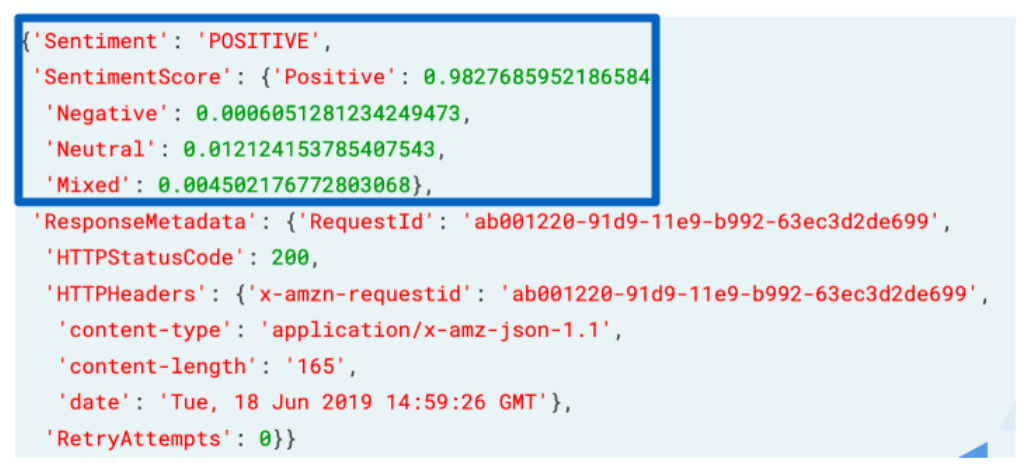Notes: Recognition
AWS Rekognition
AWS Rekognition is a computer vision service. It allows you to analyze images without building your own model.
- Works with familiar boto3 patterns
- Can detect objects like bicycles or cars
- Can extract text from signs or documents
If you create your own model, you would need training data and maintenance.
- It would only work for a specific task
- Rekognition is general-purpose and ready to use
- This makes it easy for data engineers to get results quickly.
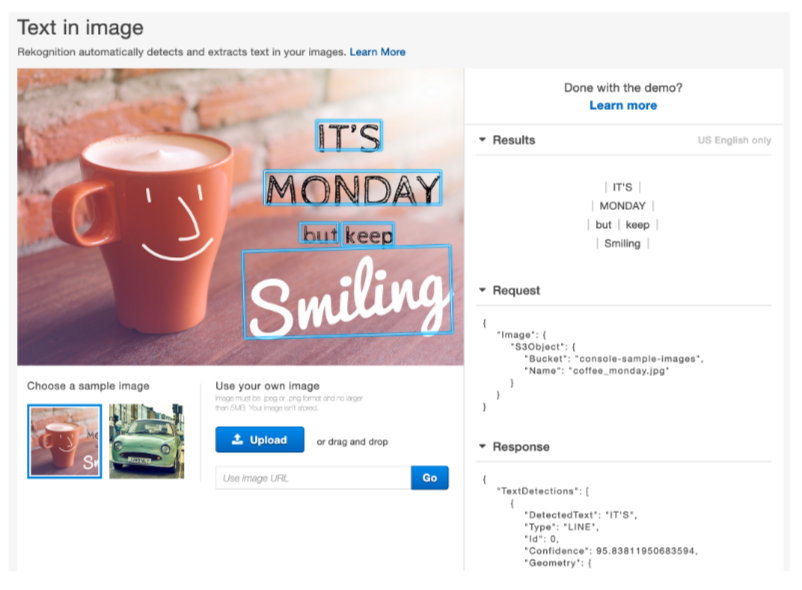
Object Detection
As example, we'll use the image below:

Before detection, upload your image to an S3 bucket.
import boto3
s3 = boto3.client(
's3',
region_name='us-east-1',
aws_secret_key_id=AWS_KEYID,
aws_secret_access_key=AWS_SECRET
)
s3.upload_file(
Filename='bike.jpg',
Bucket='city-images',
Key='bike.jpg'
)
The next step is to construct the Boto3 Rekognition client. You can use the Rekognition attributes to detect objects like bicycles.
rekog = boto3.client(
'rekognition',
region_name='us-east-1',
aws_secret_key_id=AWS_KEYID,
aws_secret_access_key=AWS_SECRET
)
response = rekog.detect_labels(
Image={'S3Object': {
'Bucket': 'city-images',
'Name': 'bike.jpg'
}},
MaxLabels=10,
MinConfidence=90
)
Optionally, we can specify the maximum amount of labels to return and the minimum confidence in the match that we are willing to accept. Rekognition returns a list of labels with instances and confidence scores.
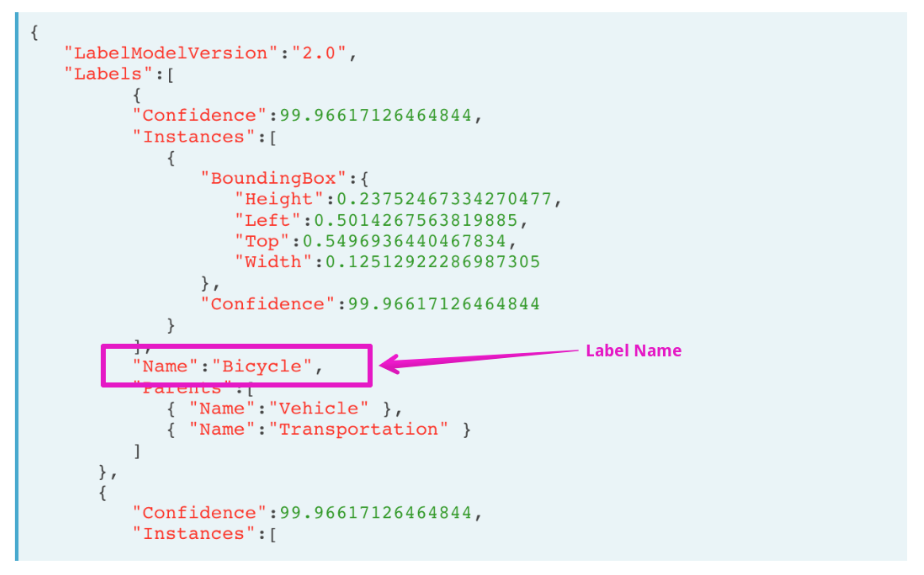
In this image, Rekognition sees 1 bicycle and many cars.
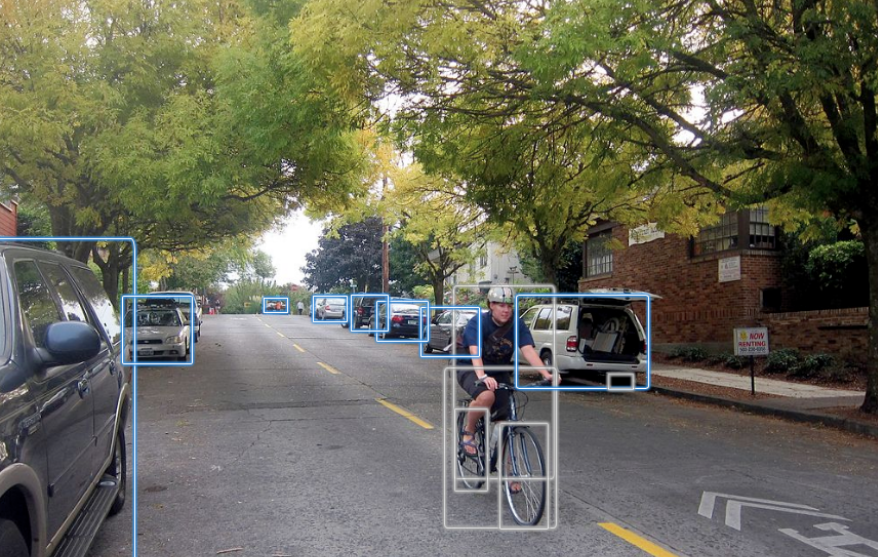
Text Detection
Text detection works in the same way...Detect text in images, such as signs or documents.
text_response = rekog.detect_text(
Image={'S3Object': {
'Bucket': 'city-images',
'Name': 'sign.jpg'
}}
)
The response returns a list of dictionaries. Detections can be of 2 types:
-
Line detections combine adjacent words
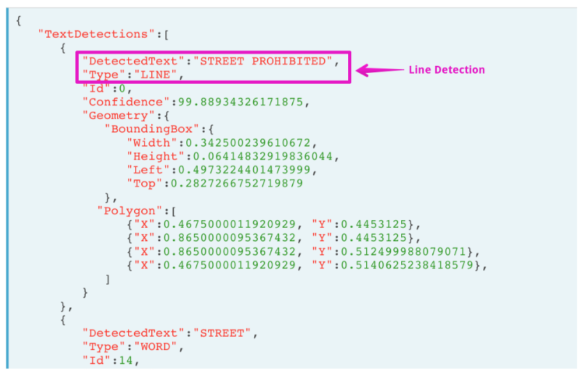
-
Word detections show individual words.
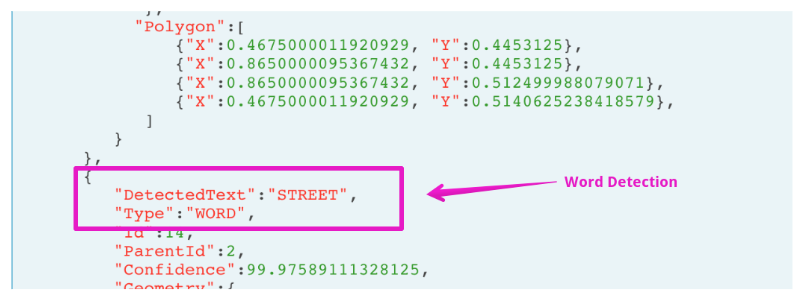
AWS Translate
AWS Translate lets you convert text between languages easily.
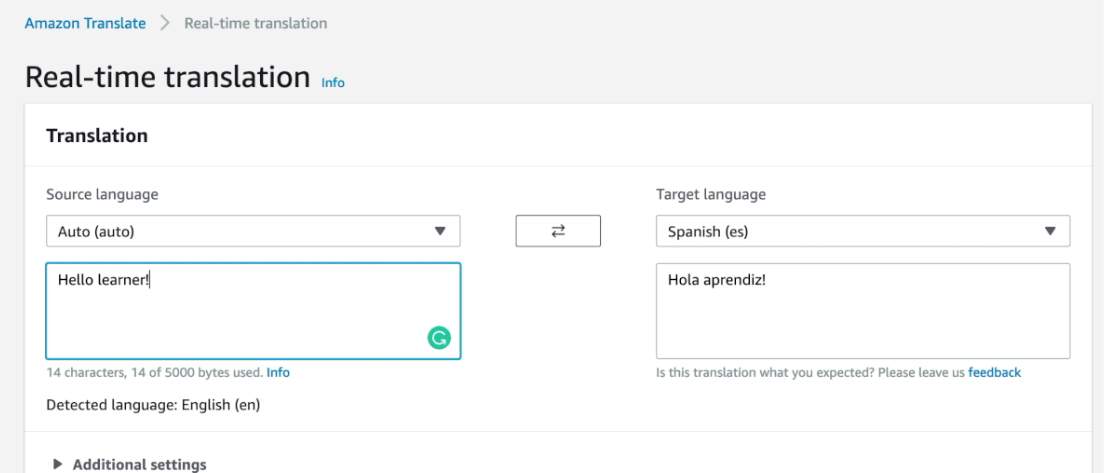
Using Boto3:
- Initialize a boto3 client for Translate
- Call
translate_textwith the text and target language - Use
'auto'forSourceLanguageCodeto detect the source language automatically
import boto3
translate = boto3.client('translate')
response = translate.translate_text(
Text="Hello, learner!",
SourceLanguageCode='auto',
TargetLanguageCode='es'
)
print(response['TranslatedText'])
AWS returns the translated text, detected source language, and target language.
Hola aprendiz!
Detecting Language
You can identify the language of a text using AWS Comprehend.
- Initialize a boto3 client for Comprehend
- Call
detect_dominant_languagewith the text - Response includes languages with confidence scores
comprehend = boto3.client('comprehend')
response = comprehend.detect_dominant_language(Text="Hola aprendiz")
print(response['Languages'])
Expected output:
## "es" refers to Spanish
[{'LanguageCode': 'es', 'Score': 0.99}]
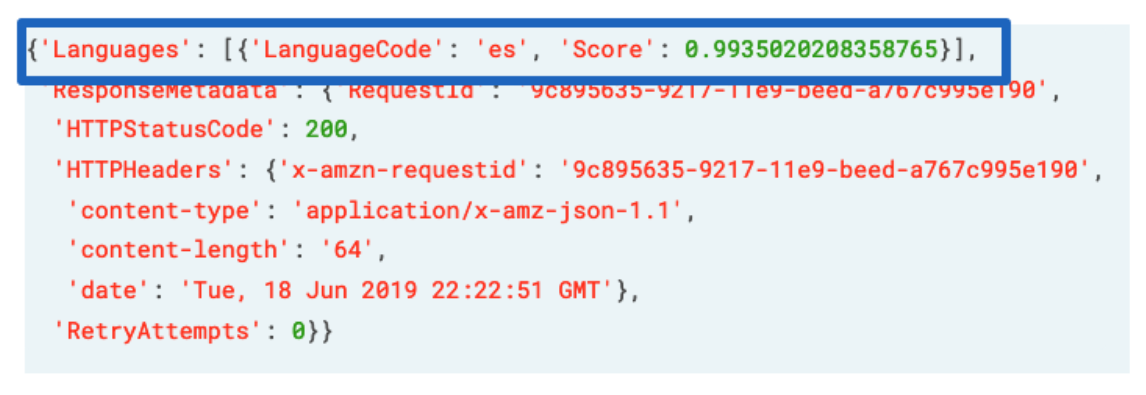
Detecting Sentiment
AWS Comprehend can also analyze the sentiment of text.
- Call
detect_sentimentwith your text - Response includes
Sentimentkey and confidence scores for Positive, Negative, Neutral, and Mixed
response = comprehend.detect_sentiment(Text="I love this product!", LanguageCode='en')
print(response['Sentiment'])
Expected output:
Positive
Sentiment detection helps understand user feedback or social media posts at scale.
